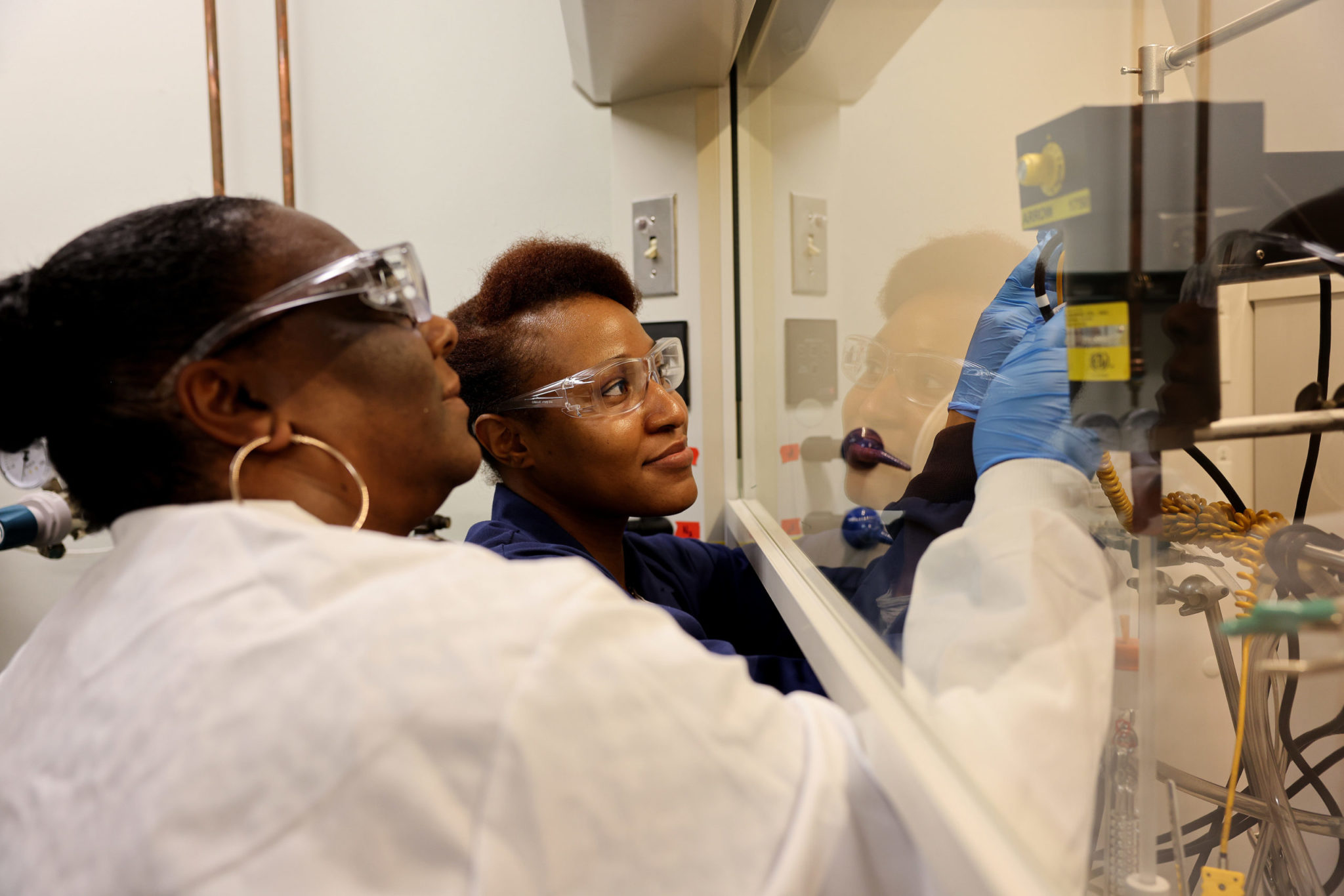By Christina Compere-Minor
Florida A&M University (FAMU) has secured a $1.5 million grant through NASA’s new Data Science Equity, Access, and Priority in Research and Education (DEAP) opportunity.
The award, part of nearly $12 million in funding announced by NASA, will enable students and faculty at FAMU and other Historically Black Colleges and Universities (HBCUs) to conduct innovative data science research that contributes to the agency’s missions.
FAMU’s project is titled “Effects of Gravity on Creeping Salts and Salt Mixtures: Developing Image-based and AI-enhanced Diagnostics for Determining Chemical Compositions.”
Led by FAMU Associate Professor Beni Dangi, Ph.D., the three-year research project will rely on artificial intelligence and machine learning to better understand the science of concentrated salt solutions and the formation of ring-like deposits called evaporites. The project will bring together ultrasonic levitation, spectroscopy, and astrochemistry expertise.
Understanding the science of salt concentrations and the formation of evaporites will bring new insight into identifying where water may have existed. Water is a critical source NASA researches and explores to better understand other planets’ surface geology and the potential future of lunar and Martian exploration, Dangi said
“This project will rely on artificial intelligence and machine learning to better understand the science of concentrated salt solutions and the formation of ring-like deposits called evaporites,” said Dangi, an associate professor of chemistry in the FAMU College of Science and Technology. “Understanding the science of salt concentrations and formation of evaporites will bring new insight into identifying where water may have existed. Water is a critical source NASA researches and explores to better understand other planets’ surface geology and the potential future of lunar and Martian exploration.”
FAMU is one of eight HBCUs awarded the $11.7 million grant to conduct innovative data science research that contributes to NASA’s missions. In addition to FAMU, NASA selected Bethune-Cookman University, Fayetteville State University, Lincoln University, Morgan State University, North Carolina A&T State University, North Carolina Central University, and Prairie View A&M University for the grant.
“We’re pleased to make progress through awards like this to intentionally build the STEM pipeline of the future, especially in communities of color,” said NASA Deputy Administrator Pam Melroy. “It’s fitting during Black History Month that we make this tangible step to build on the talent pool at HBCUs in our ongoing work to bring to the table all the talents and perspectives we’ll need to send humans to the Moon, Mars and beyond, and do amazing science throughout the solar system.”
In previous years, NASA has invested in computer science, artificial intelligence, and pattern recognition projects led by Professor Jie Yan at Bowie State University; nonequilibrium self-organization of polycrystalline solids by Florida State University Professor Oliver Steinbock; and rheology, soft matter, and microgravity science at the NASA Glenn Research Center.
This award is expected to continue to directly impact research and education of minority students, particularly at FAMU and Bowie State University, NASA said in a statement.





